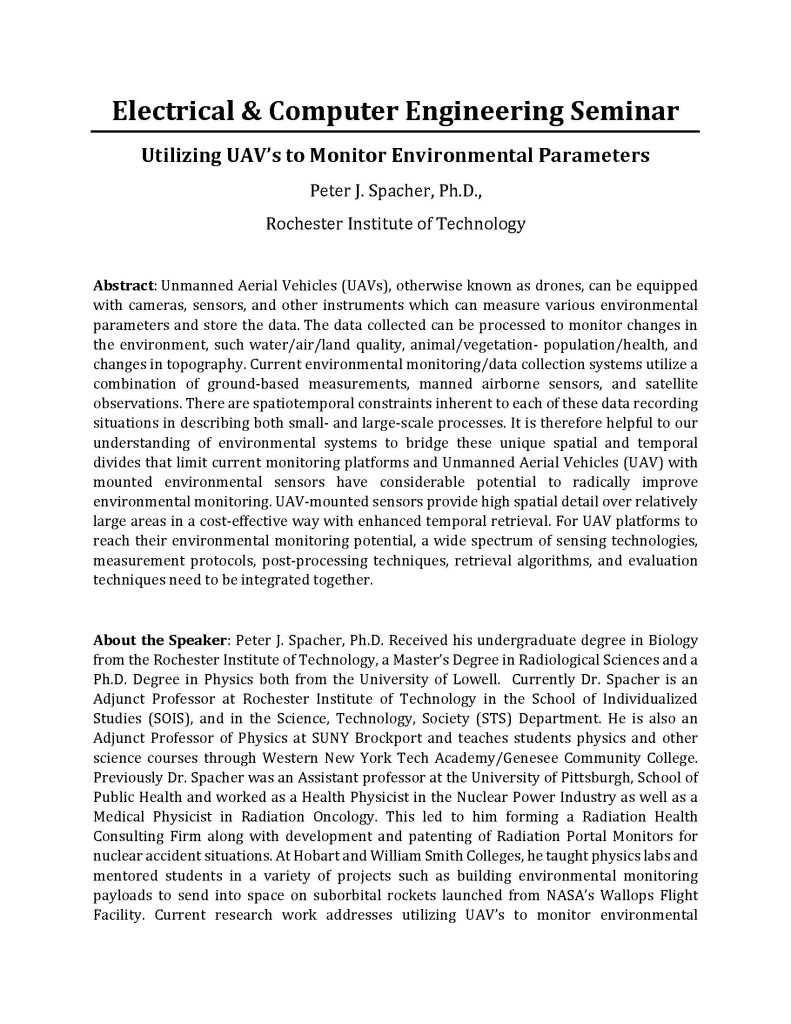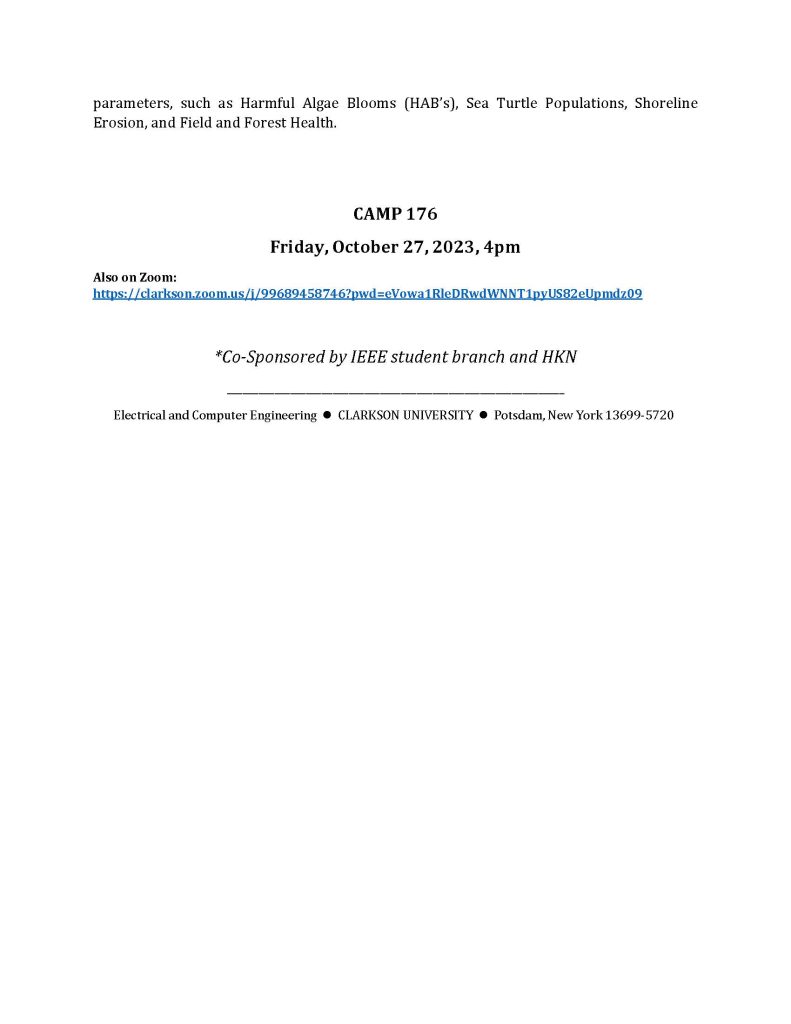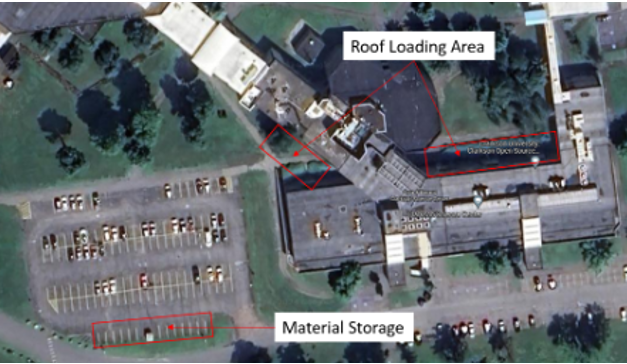Electrical & Computer Engineering Seminar
Utilizing UAV’s to Monitor Environmental Parameters
Peter J. Spacher, Ph.D.,
Rochester Institute of Technology
Abstract: Unmanned Aerial Vehicles (UAVs), otherwise known as drones, can be equipped with cameras, sensors, and other instruments which can measure various environmental parameters and store the data. The data collected can be processed to monitor changes in the environment, such water/air/land quality, animal/vegetation- population/health, and changes in topography. Current environmental monitoring/data collection systems utilize a combination of ground-based measurements, manned airborne sensors, and satellite observations. There are spatiotemporal constraints inherent to each of these data recording situations in describing both small- and large-scale processes. It is therefore helpful to our understanding of environmental systems to bridge these unique spatial and temporal divides that limit current monitoring platforms and Unmanned Aerial Vehicles (UAV) with mounted environmental sensors have considerable potential to radically improve environmental monitoring. UAV-mounted sensors provide high spatial detail over relatively large areas in a cost-effective way with enhanced temporal retrieval. For UAV platforms to reach their environmental monitoring potential, a wide spectrum of sensing technologies, measurement protocols, post-processing techniques, retrieval algorithms, and evaluation techniques need to be integrated together.
About the Speaker: Peter J. Spacher, Ph.D. Received his undergraduate degree in Biology from the Rochester Institute of Technology, a Master’s Degree in Radiological Sciences and a Ph.D. Degree in Physics both from the University of Lowell. Currently Dr. Spacher is an Adjunct Professor at Rochester Institute of Technology in the School of Individualized Studies (SOIS), and in the Science, Technology, Society (STS) Department. He is also an Adjunct Professor of Physics at SUNY Brockport and teaches students physics and other science courses through Western New York Tech Academy/Genesee Community College. Previously Dr. Spacher was an Assistant professor at the University of Pittsburgh, School of Public Health and worked as a Health Physicist in the Nuclear Power Industry as well as a Medical Physicist in Radiation Oncology. This led to him forming a Radiation Health Consulting Firm along with development and patenting of Radiation Portal Monitors for nuclear accident situations. At Hobart and William Smith Colleges, he taught physics labs and mentored students in a variety of projects such as building environmental monitoring payloads to send into space on suborbital rockets launched from NASA’s Wallops Flight Facility. Current research work addresses utilizing UAV’s to monitor environmental parameters, such as Harmful Algae Blooms (HAB’s), Sea Turtle Populations, Shoreline Erosion, and Field and Forest Health.
CAMP 176
Friday, October 27, 2023, 4pm
Also on Zoom: https://clarkson.zoom.us/j/99689458746?pwd=eVowa1RleDRwdWNNT1pyUS82eUpmdz09
*Co-Sponsored by IEEE student branch and HKN
________________________________________________________________
Electrical and Computer Engineering l CLARKSON UNIVERSITY l Potsdam, New York 13699-5720





